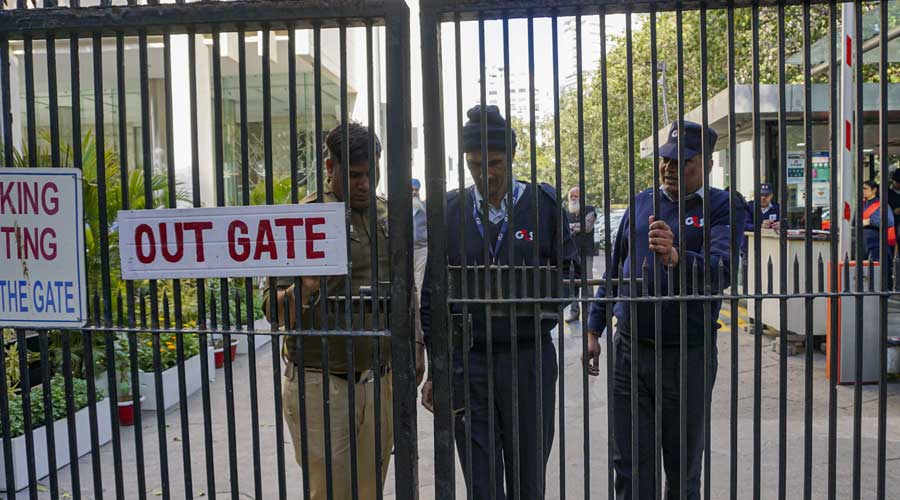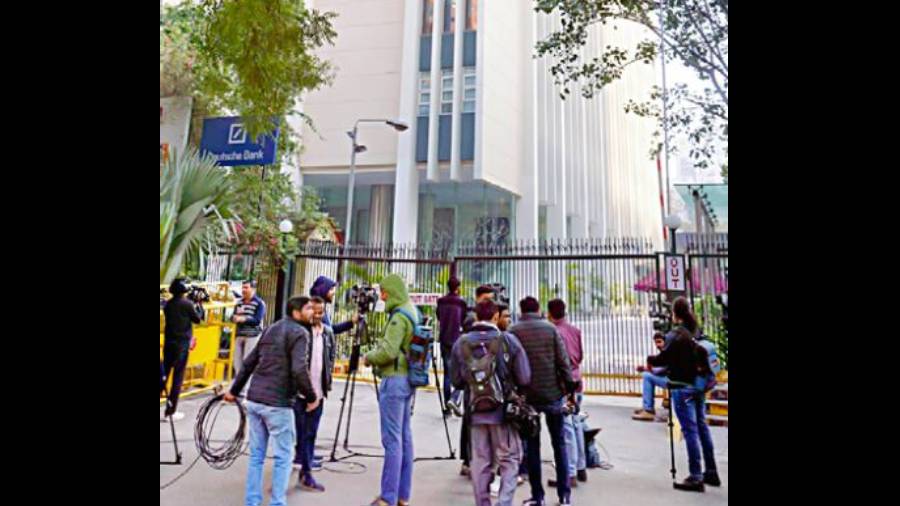The Financial Times has now joined The Guardian and The Times in London in condemning “India’s creeping clampdown on free expression”.
The paper does not buy the Indian government’s explanation that the tax authorities were conducting a legitimate “survey” of the BBC’s business dealings.
Instead, it says “the raids on the BBC are part of a troubling global picture for media rights”.
The FT has also been relentless in its pursuit of the Gautam Adani affair, which it says has been raising questions about the probity of corporate India, particularly in view of the tycoon’s perceived closeness to Narendra Modi. But the paper’s latest leader comment is devoted to the Indian government’s actions against the BBC.
One of the world’s premier financial newspapers said that “harassment by the tax or legal authorities is becoming a common occurrence in India for those deemed critical of premier Narendra Modi. Last week, tax police turned up at two Indian offices of the BBC — weeks after the UK broadcaster aired films questioning Modi’s actions during deadly religious riots in Gujarat in 2002.
The raids on one of the most respected global media brands are emblematic of the spiralling threat to freedom of expression in a country that promotes itself as the world’s largest democracy.
“The Hindu nationalist government had tried to block online circulation of the twopart BBC documentary that probed the response of Modi — then Gujarat’s chief minister — to the riots in which more than 1,000 people, mostly Muslims, died. Many Indians still found ways to watch. Officials denied any link with the ‘survey’ at the BBC offices. But the finance ministry alleged on Friday evidence had been found of tax irregularities at a ‘prominent international media company’. Reporters Without Borders (RSF), a media watchdog, said the raids bore ‘all the hallmarks of a reprisal’. Some hardline Modi supporters alleged the BBC films were a British government plot to bring down India — which suggests a profound misunderstanding of the nature of the publicly-funded broadcaster.”
The FT argued: “The squeeze on media freedom under Modi resembles those of strongman nationalist leaderships from Russia to Turkey to Hungary. While India’s press was once seen as ‘fairly progressive’, RSF says Modi engineered a ‘spectacular rapprochement’ between his Bharatiya Janata party and the billionaire families that dominate the media. The businesses of Mukesh Ambani, now a Modi friend, own more than 70 outlets followed by at least 800mn Indians. Gautam Adani, whose empire has been engulfed in controversy but has longstanding ties to India’s premier, recently took over NDTV, a rare bastion of independent media.”
It pointed out that “many of the largest outlets in India’s sprawling media landscape are owned by corporate groups with other business interests, susceptible to various forms of regulatory pressure. The New Delhi government has realised media groups’ financial reliance on advertising from local and regional governments can also be used to encourage a favourable narrative. Pressure from fiscal and law enforcement agencies is increasingly common against remaining independent and online outlets. Targets have included not just journalists and opposition voices but think-tanks and foreign non-profit groups including Oxfam India and Amnesty”.
The FT went on: “The Indian clampdown is part of a depressing global picture. A Unesco analysis found 85 per cent of the world’s population experienced a decline in press freedom in their country between 2016 and 2021. Some 455 journalists were killed in that period. Just before the BBC was harassed in India last week, Hun Sen, Cambodia’s leader for 38 years, revoked the licence of Voice of Democracy — one of that country’s last independent outlets. Media freedoms are threatened in developed democracies too. Libel and privacy laws are being used to hound investigative reporters. RSF warns that the spread of Fox News-style ‘opinion media’ and disinformation amplified by social media are fuelling division.”
The FT emphasised that “events in India are particularly disheartening in what is set to become the world’s most populous country this year — an aspiring counterweight to authoritarian China”.











